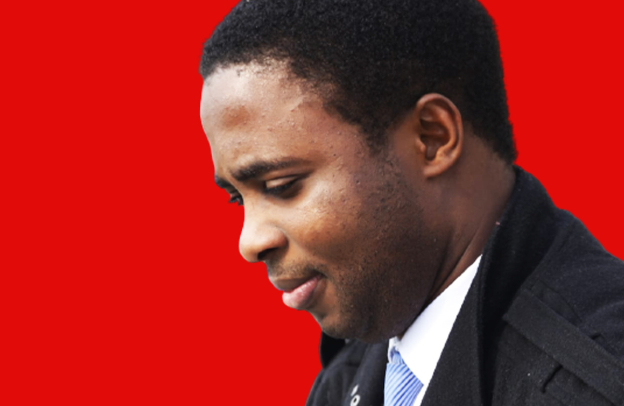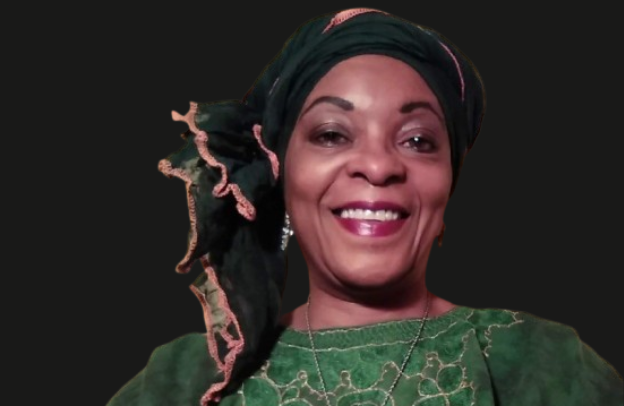Lessons from Obehi Ewanfoh: The Power of Personal and Cultural Narratives in Social Entrepreneurship

What if the key to unlocking your entrepreneurial success lies not in a business strategy, but in your own story? Have you ever wondered how your personal experiences or cultural heritage could elevate your social impact business? For African diaspora entrepreneurs, personal and cultural narratives are not just tools for connection; they are the foundation of change.
Learn How to Leverage Your Story through our Story To Asset Framework.
One such entrepreneur who has mastered the art of using his story to create social impact is Obehi Ewanfoh. Through his journey, Obehi has proven that telling your story authentically can build bridges, foster unity, and drive sustainable development.
Obehi Ewanfoh’s story is a testament to the power of cultural and personal narratives in entrepreneurship. Born in Nigeria and now living in Italy, Obehi has built a thriving career as a storyteller, social impact coach, and advocate for African diaspora communities.
His work emphasizes that understanding and embracing your cultural heritage can be the catalyst for profound social change. So, what lessons can you draw from his journey to harness the full potential of your own story in your entrepreneurial path?
The Power of Personal and Cultural Narratives in Social Entrepreneurship
The significance of storytelling in social entrepreneurship cannot be overstated. As an entrepreneur, you are not just selling a product or service – you are selling a vision, a mission, and a story.
Storytelling is a means of establishing a deep connection with your audience. For African diaspora entrepreneurs, this connection is even more profound. Your story is a powerful tool that can build trust, raise awareness, and inspire action.
Obehi’s work offers a shining example of how personal and cultural stories can shape a successful business. His journey from writing his first book, “Round My Mind”, in his secondary school days in Nigeria, to becoming a global advocate for social impact, shows how weaving personal history into a professional journey can build credibility and influence.
As he moved from Uromi, Nigeria, to Verona, Italy, his experiences of migration, cultural adaptation, and identity crisis became a rich source of insight for his social impact work.
Social entrepreneurs who embrace their personal and cultural stories can leverage their unique perspectives to form connections that go beyond business transactions. By sharing your journey, you don’t just build a brand; you create a narrative that speaks directly to the heart of your audience.
How Cultural Heritage Shapes Powerful Narratives
One of the most remarkable aspects of Obehi’s storytelling is how he draws on his Esan cultural heritage from Edo State, Nigeria. African diaspora entrepreneurs often face the challenge of bridging cultural gaps.
However, Obehi uses his background not as an obstacle, but as a source of strength. His deep understanding of African identity, coupled with his experiences in the global diaspora, empowers him to create narratives that resonate with diverse audiences.
Cultural heritage is more than a backdrop for Obehi’s storytelling—it is a source of empowerment. This concept is not limited to Obehi alone; African diaspora communities around the world are increasingly turning to their heritage to fuel their entrepreneurial ventures.
According to a 2020 report by the African Development Bank, the African diaspora’s economic contribution, including investments, remittances, and business ventures, exceeded $85 billion annually. For social entrepreneurs, this financial potential is only one side of the coin. The true value of this community lies in the cultural and social capital they bring to the table.
See also Using Your Past to Shape Your Future: How Personal History Informs Your Business Journey
By tapping into the rich history of their African heritage, entrepreneurs in the diaspora can create stories that not only inform but also inspire. When cultural identity is woven into business strategies, it makes the business more relatable and meaningful to its target audience.
For Obehi, using African history, traditions, and his personal experiences as part of his storytelling framework has not only helped him build a global following but has also promoted greater cultural awareness and understanding.
Turning Personal Experiences into Entrepreneurial Success
Your personal journey is more than a story of triumph or struggle, it is an essential component of your business identity. Obehi’s narrative is a testament to the idea that your personal experiences, no matter how challenging, can become the bedrock of your entrepreneurial success.
For Obehi, it was his migration experience, his exploration of identity, and his struggles with belonging that became a source of insight and direction for his social entrepreneurship endeavors.
His personal story is intricately tied to the social causes he supports. Through his work, including his “Story to Asset” framework, Obehi has helped countless entrepreneurs turn their personal narratives into powerful assets for social change.
His journey is a constant reminder that entrepreneurs are not just creators of businesses, they are creators of movements. By embracing their personal histories, social entrepreneurs can harness a sense of purpose that not only drives business growth but also facilitates long-lasting social impact.
See also Exploring Cultural Issues: How Personal and Societal Mindsets Shape Our Perspectives
Your personal experience can serve as the inspiration for the products or services you provide. The struggles you’ve overcome, the lessons you’ve learned, and the values you hold dear can all shape the solutions you offer. Obehi’s story highlights the transformative power of embracing personal adversity and using it to fuel your passion for social good.
Building Bridges Through Narrative
Storytelling in the African diaspora serves a crucial function: it builds bridges. Through stories, communities are able to transcend geographical, social, and cultural boundaries. When you share your narrative authentically, you invite others to engage with you, understand your mission, and contribute to your cause.
Obehi’s commitment to fostering unity within the African diaspora is reflected in his creation of WeDiasporan, a socio-cultural organization dedicated to reconnecting people of African descent with their cultural heritage.
Through initiatives like his podcast and his documentaries, Obehi has used storytelling as a tool to engage Africans across the globe, creating a platform for dialogue and collaboration.
As an entrepreneur, you can use your story to unite people, inspire action, and create solidarity around your social cause. The African diaspora is a vast and diverse community, yet through the power of shared stories, you can cultivate a sense of belonging, purpose, and unity that can spark real change.
Lessons from Obehi Ewanfoh’s Journey: Turning Challenges into Opportunities
Obehi’s story is not without its challenges. Like many diaspora entrepreneurs, he faced obstacles such as migration, identity struggles, and cultural displacement. Yet, it is precisely these challenges that have shaped his social impact work.
His documentaries, such as “Creating the Blackness of Africa” and “Pan-Africanism: Testing Ideas on Reality”, address complex issues within the African diaspora, highlighting the responsibility of Africans in shaping their social and political futures.
For you as an entrepreneur, this is an important lesson: your challenges are not weaknesses—they are opportunities. By embracing and sharing your struggles, you can empower others who face similar obstacles.
See also The Power of Group Cultural Tourism to Build Deeper Connections Among People of the African Diaspora
Your story can become a beacon of hope for those who need to hear it, and a call to action for those who are ready to join the movement.
Conclusion: The Power of Your Story in Shaping the Future
Obehi Ewanfoh’s journey illustrates a simple yet profound truth: your personal and cultural narrative is one of your greatest assets. By embracing your story, you connect with your audience on a deeper level, inspire action, and drive social change.
As an African diaspora entrepreneur, your experiences, challenges, and cultural heritage are not just elements of your past—they are the foundation of your future.
So, how will you use your story to shape the future of your social entrepreneurship journey?
Start today by reflecting on your experiences and crafting a narrative that speaks to your mission. Embrace your unique cultural heritage, and let your story become a powerful tool for social change.
Learn How to Leverage Your Story through our Story To Asset Framework.





